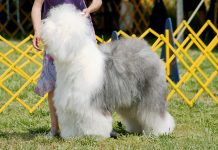History and Origins of the Jack Russell Terrier Breed:

The Jack Russell Terrier, often referred to simply as the “Jack Russell,” is a spirited and energetic breed known for its intelligence, agility, and hunting instincts. The breed’s history can be traced back to the early 19th century in England, where Reverend John Russell (also known as “Jack”) developed the breed for fox hunting.
Reverend Russell, an avid fox hunter and terrier enthusiast, aimed to create a small, agile, and fearless terrier capable of keeping up with foxhounds during hunts and adept at locating and bolting foxes from their dens. He selected terriers with specific characteristics, such as stamina, determination, and a keen sense of smell, to create what would eventually become the Jack Russell Terrier.
The early Jack Russell Terriers were prized for their versatility and working abilities. They excelled not only in fox hunting but also in ratting, digging, and other tasks requiring agility and tenacity. The breed’s name was officially recognized as the “Jack Russell Terrier” in honor of Reverend Russell’s contributions to its development.
Over time, the Jack Russell Terrier gained popularity beyond hunting circles and became valued as a companion and family pet due to its spirited nature, intelligence, and affectionate personality. The breed was recognized by the American Kennel Club (AKC) in 2012 under the name “Parson Russell Terrier,” a related but distinct breed with slightly different conformation standards.
Today, the Jack Russell Terrier remains a beloved breed cherished for its lively temperament, boundless energy, and unwavering loyalty to its family. While they may be small in size, Jack Russells possess a big heart and an adventurous spirit that endear them to dog enthusiasts worldwide.
Physical Characteristics and Appearance of Jack Russell Terriers:
The Jack Russell Terrier is a compact and muscular breed characterized by its distinctive appearance and athletic build. Here are the key physical characteristics and traits of Jack Russell Terriers:
- Size: Jack Russell Terriers are small to medium-sized dogs. They typically stand between 10 to 15 inches (25 to 38 cm) at the shoulder and weigh 13 to 17 pounds (6 to 8 kg) on average.
- Body: Jack Russells have a well-balanced and athletic body with a deep chest, strong legs, and a straight back. They are agile and built for speed and agility, allowing them to navigate various terrains with ease.
- Head: The breed’s head is proportionate to its body, with a flat skull and a defined stop (forehead). Jack Russells have a moderately broad muzzle and strong jaws.
- Ears: Jack Russell Terriers have V-shaped ears that fold forward and are usually carried erect or semi-erect when alert. The ears are an important feature for hunting, as they help the dog locate and pinpoint sounds.
- Eyes: Jack Russells have dark, almond-shaped eyes that convey intelligence and alertness. The eyes are expressive and set well apart on the face.
- Tail: The breed’s tail is traditionally docked to a medium length, but in countries where docking is prohibited, it is carried erect and tapers to a point. The tail is an important aspect of the breed’s balance and overall appearance.
- Coat: Jack Russell Terriers have a dense, coarse double coat that is predominantly white with black, tan, or brown markings. The coat is weather-resistant and requires regular grooming to maintain.
Overall, the Jack Russell Terrier’s physical characteristics reflect its heritage as a versatile and agile working terrier. They are spirited, intelligent dogs with a confident demeanor and boundless energy, making them well-suited for active families and individuals who appreciate their adventurous spirit and unwavering loyalty.
Jack Russell Terrier Temperament and Personality Traits:
Jack Russell Terriers are known for their spirited and energetic temperament. They possess a unique combination of intelligence, determination, and enthusiasm that defines their personality. Here are some key temperament and personality traits of Jack Russell Terriers:
- Energetic: Jack Russells are highly energetic dogs with boundless enthusiasm for life. They thrive on physical activity and mental stimulation and require regular exercise to stay happy and healthy.
- Intelligent: Jack Russells are exceptionally intelligent and quick learners. They excel in activities that challenge their minds, such as obedience training, agility, and interactive games.
- Fearless: Despite their small size, Jack Russells are fearless and confident dogs. They have a strong prey drive and may chase small animals or dig to pursue interesting scents.
- Alert: Jack Russells are naturally alert and vigilant, making them excellent watchdogs. They are quick to detect changes in their environment and will alert their owners to potential threats or visitors.
- Affectionate: Despite their active nature, Jack Russells are affectionate and devoted to their families. They thrive on companionship and enjoy spending time with their human “pack.”
- Independent: Jack Russells have a streak of independence and may exhibit stubborn tendencies at times. They benefit from consistent training and clear leadership to channel their intelligence and energy appropriately.
- Playful: Jack Russells have a playful and mischievous side that endears them to their owners. They enjoy interactive games, fetch, and toys that challenge their problem-solving skills.
- Social: Proper socialization is essential for Jack Russell Terriers to develop good manners and confidence around other dogs and people. Early exposure to various environments and experiences helps prevent shyness or aggression.
- Curious: Jack Russells are naturally curious dogs with a keen sense of exploration. They enjoy exploring their surroundings and investigating new sights, sounds, and smells.
- High Prey Drive: Due to their hunting background, Jack Russells have a strong instinct to chase small animals. They should be supervised around smaller pets and may require training to manage their prey drive.
Training and Socialization Needs for Jack Russell Terriers:
Training and socialization are crucial aspects of raising a well-behaved and well-adjusted Jack Russell Terrier. Here are important considerations for training and socialization needs:
- Early Training: Start training your Jack Russell Terrier as early as possible to establish basic obedience commands, such as sit, stay, come, and heel. Use positive reinforcement techniques, such as treats and praise, to motivate and reward good behavior.
- Consistency: Jack Russells respond best to consistent training methods and clear communication. Be patient and firm, and avoid harsh punishment or negative reinforcement, which can lead to resistance and distrust.
- Exercise Requirements: Provide ample opportunities for exercise and mental stimulation to prevent boredom and destructive behavior. Jack Russells benefit from daily walks, play sessions, and interactive games that challenge their physical and mental abilities.
- Socialization: Expose your Jack Russell Terrier to various people, animals, and environments from a young age to promote socialization and prevent fearfulness or aggression. Enroll in puppy classes or obedience training to help your dog learn proper social skills.
- Channel Energy Appropriately: Jack Russells have high energy levels and may engage in undesirable behaviors, such as digging or excessive barking, if not properly exercised. Provide appropriate outlets for their energy through structured activities and playtime.
- Preventive Measures: Due to their agility and curiosity, Jack Russells may be prone to escaping or exploring. Ensure your home and yard are secure, and use a leash or harness during walks to prevent your dog from running off.
- Patience and Persistence: Training a Jack Russell Terrier requires patience and persistence due to their strong-willed nature. Stay consistent with training routines and seek professional guidance if needed to address specific behavior challenges.
By providing consistent training, ample exercise, and positive socialization experiences, you can help your Jack Russell Terrier develop into a well-rounded and well-behaved companion. With the right approach and dedication, you’ll enjoy the spirited personality and loyal companionship that this breed has to offer.
Health Considerations and Common Issues in Jack Russell Terriers:
Jack Russell Terriers are generally healthy and hardy dogs, but like all breeds, they may be prone to certain health conditions and genetic predispositions. Being aware of these common issues can help you provide proactive care and early intervention for your Jack Russell Terrier. Here are some health considerations and common issues in this breed:
- Patellar Luxation: This is a condition where the kneecap (patella) dislocates or moves out of its normal position. It can cause intermittent lameness and discomfort, especially during physical activity.
- Lens Luxation: Jack Russell Terriers are susceptible to lens luxation, a condition where the lens of the eye becomes displaced. This can lead to glaucoma and vision loss if not promptly treated.
- Deafness: Some Jack Russell Terriers may inherit congenital deafness, which can be unilateral (one ear affected) or bilateral (both ears affected). Genetic testing can help identify carriers of the deafness gene.
- Legg-Calvé-Perthes Disease: This is a degenerative condition of the hip joint that can cause pain, lameness, and arthritis. It typically affects small breeds like Jack Russell Terriers and may require surgical intervention.
- Cataracts: Jack Russell Terriers are prone to developing cataracts, which can affect vision and lead to blindness if left untreated. Regular eye exams are important for early detection and management.
- Dental Issues: Small breeds like Jack Russell Terriers are susceptible to dental problems such as dental tartar buildup, gum disease, and tooth loss. Regular dental care, including brushing and dental cleanings, is essential for oral health.
- Allergies: Some Jack Russell Terriers may experience skin allergies or food sensitivities, leading to itching, skin infections, and discomfort. Identifying and avoiding allergens can help manage allergic reactions.
- Obesity: Due to their high energy levels and hearty appetites, Jack Russell Terriers may be prone to obesity if not provided with proper diet and exercise. Maintain a balanced diet and monitor food intake to prevent weight gain.
- Hypothyroidism: Jack Russell Terriers may develop hypothyroidism, a condition caused by an underactive thyroid gland. Symptoms include weight gain, lethargy, and skin issues. Treatment typically involves lifelong medication.
- Heart Conditions: Some Jack Russell Terriers may be prone to heart conditions such as mitral valve disease or congenital heart defects. Regular veterinary check-ups can help detect and manage heart issues.
Living with a Jack Russell Terrier: Suitable Environments and Lifestyle Considerations:

Jack Russell Terriers are active, intelligent, and spirited dogs that thrive in environments where they can stay mentally and physically engaged. Here are some considerations for living with a Jack Russell Terrier:
- Exercise Needs: Provide ample opportunities for exercise and mental stimulation to keep your Jack Russell Terrier happy and healthy. Daily walks, interactive games, and training sessions are essential to prevent boredom and behavioral issues.
- Secure Environment: Jack Russell Terriers are curious and agile dogs that may attempt to escape or explore. Ensure your home and yard are secure, and use a leash or harness during walks to prevent wandering.
- Training and Socialization: Early training and socialization are crucial for Jack Russell Terriers to develop good manners and confidence. Enroll in obedience classes and expose your dog to various people, animals, and environments from a young age.
- Attention and Companionship: Jack Russell Terriers thrive on companionship and may become bored or destructive if left alone for long periods. Spend quality time with your dog and provide interactive toys and activities to keep them mentally stimulated.
- Grooming Needs: Jack Russell Terriers have a short, dense coat that requires regular brushing to minimize shedding and maintain skin health. Trim nails, clean ears, and brush teeth regularly to promote overall hygiene.
- Veterinary Care: Schedule regular veterinary check-ups, vaccinations, and preventive care to monitor your Jack Russell Terrier’s health and detect any potential issues early. Follow your veterinarian’s recommendations for flea, tick, and heartworm prevention.
- Supervision: Due to their strong prey drive, Jack Russell Terriers may chase small animals or exhibit hunting behavior. Supervise interactions with smaller pets and provide appropriate outlets for their instincts through supervised play and activities.
By understanding the unique health considerations and lifestyle needs of Jack Russell Terriers, you can create a nurturing and enriching environment for your dog to thrive. With proper care, training, and attention, Jack Russell Terriers make wonderful companions and loyal family members who will enrich your life with their boundless energy and affectionate nature.
Jack Russell Terrier Variations and Breeding Practices
Jack Russell Terriers are a popular and distinctive breed known for their energy, intelligence, and tenacity. While they may not exhibit as much physical variation as some other breeds, there are considerations and practices related to breeding Jack Russell Terriers that are important to understand. Here’s a look at Jack Russell Terrier variations and breeding practices:
Variations within the Jack Russell Terrier Breed:
- Coat Types: Jack Russell Terriers typically have a smooth, short coat that is easy to maintain. However, some individuals may exhibit a rough or broken coat, which is slightly longer and may have a coarse texture. Both coat types are recognized within the breed standard.
- Color: Jack Russell Terriers come in a variety of colors, including predominantly white with black, tan, or brown markings. The breed standard allows for a range of color combinations, but white should always predominate.
- Size: Jack Russell Terriers are considered a small to medium-sized breed, with an average height of 10-15 inches (25-38 cm) at the shoulder. There can be some variation in size within the breed, but they should maintain a proportionate and balanced appearance.
- Conformation: Jack Russell Terriers are well-balanced dogs with a muscular build and a sturdy frame. They are known for their athletic abilities and should exhibit a confident and alert demeanor.
Breeding Practices for Jack Russell Terriers:
Responsible breeding of Jack Russell Terriers focuses on preserving the breed’s natural instincts, health, and temperament. Here are key considerations in Jack Russell Terrier breeding practices:
- Health Screening: Reputable breeders conduct health screenings and genetic testing to identify potential health issues that may affect the breed, such as patellar luxation, deafness, and lens luxation. Screening breeding dogs helps minimize the risk of passing on hereditary conditions to offspring.
- Temperament and Behavior: Breeders select breeding pairs based on temperament and behavior to ensure that puppies inherit desirable traits, such as intelligence, sociability, and trainability. Jack Russell Terriers should have a confident but not overly aggressive temperament.
- Conformation: Breeders adhere to the breed standard set by kennel clubs, such as the American Kennel Club (AKC) or the United Kennel Club (UKC), which specifies the ideal physical characteristics and proportions of Jack Russell Terriers. This includes body structure, head shape, ear carriage, and coat color/pattern.
- Working Ability: Jack Russell Terriers are working dogs with a strong prey drive and hunting instincts. Responsible breeders prioritize maintaining the breed’s original purpose and abilities, such as agility, endurance, and determination in hunting activities.
- Genetic Diversity: Maintaining genetic diversity is important for the overall health and vitality of the Jack Russell Terrier breed. Responsible breeders avoid excessive inbreeding and may collaborate with other breeders to introduce new bloodlines and prevent genetic issues.
- Ethical Considerations: Ethical Jack Russell Terrier breeders prioritize the welfare of their dogs and puppies above financial gain. They provide proper care, socialization, and veterinary attention to breeding dogs and puppies and ensure that all puppies go to responsible and loving homes.
By following responsible breeding practices and prioritizing the health, temperament, and conformation of Jack Russell Terriers, breeders can contribute to the preservation and improvement of this beloved breed. Prospective Jack Russell Terrier owners should seek reputable breeders who adhere to ethical breeding standards and prioritize the overall well-being of their dogs and puppies.
50 Best Names with Meanings for Jack Russell Terriers
Naming your Jack Russell Terrier can be a fun and meaningful experience. Here are 50 great names with meanings for Jack Russell Terriers:
- Buddy – A friendly and loyal companion.
- Luna – Latin for “moon,” symbolizing brightness and energy.
- Max – Short for Maximus, meaning “greatest.”
- Maggie – Derived from Margaret, meaning “pearl.”
- Charlie – A popular name meaning “free man.”
- Daisy – Represents freshness and cheerfulness.
- Rocky – Strong and resilient.
- Rosie – Derived from “rose,” symbolizing beauty.
- Toby – A playful and friendly name.
- Lola – Bright and lively, perfect for an energetic Terrier.
- Oscar – Meaning “deer friend.”
- Lucy – Derived from “light,” symbolizing brightness.
- Bailey – A spirited and lively companion.
- Ziggy – Quirky and fun.
- Sasha – Short for Alexander or Alexandra, meaning “defender of mankind.”
- Bella – Italian for “beautiful.”
- Buster – Energetic and lively.
- Sadie – Meaning “princess” or “noble.”
- Finn – Of Irish origin, meaning “fair” or “white.”
- Chloe – Greek for “blooming” or “fertility.”
- Riley – Courageous and valiant.
- Penny – Short for Penelope, meaning “weaver.”
- Jack – A classic and strong name, fitting for a Jack Russell.
- Sophie – Of Greek origin, meaning “wisdom.”
- Teddy – Cute and cuddly.
- Stella – Latin for “star,” symbolizing brightness and strength.
- Milo – Meaning “soldier” or “merciful.”
- Ruby – Precious and vibrant, like a gemstone.
- Scout – Adventurous and curious.
- Coco – Sweet and delightful.
- Leo – A strong and confident name, meaning “lion.”
- Willow – Graceful and adaptable.
- Archie – Bold and brave.
- Molly – Irish for “star of the sea.”
- Gizmo – Playful and inventive.
- Ivy – Represents fidelity and friendship.
- Rusty – Energetic and lively.
- Lucky – Fortunate and blessed.
- Pepper – Spicy and lively.
- Winston – Regal and dignified.
- Pixie – Mischievous and playful.
- Harley – Spirited and adventurous.
- Nala – African origin, meaning “successful” or “beloved.”
- Cooper – Skilled and adept.
- Mia – Of Scandinavian origin, meaning “beloved.”
- Dexter – Clever and skillful.
- Hazel – Gentle and wise.
- Tyson – Strong and powerful.
- Poppy – Cheerful and vibrant.
- Rocco – Robust and hearty.
Choose a name that resonates with your Jack Russell Terrier’s personality, appearance, or the qualities you admire. Whether you prefer classic, whimsical, or meaningful names, there’s sure to be a perfect fit for your lively and spirited companion!

In conclusion, this comprehensive guide to Jack Russell Terriers has provided a detailed exploration of this energetic and spirited breed. Throughout our discussion, we’ve uncovered the fascinating history, distinctive characteristics, and essential care considerations that define Jack Russell Terriers. Known for their intelligence, agility, and boundless energy, Jack Russells make fantastic companions for active individuals and families willing to provide them with plenty of exercise and mental stimulation. Whether as skilled working dogs or beloved family pets, Jack Russell Terriers bring excitement, loyalty, and endless entertainment into our lives. As you embark on your journey with a Jack Russell Terrier, may you embrace their adventurous spirit and enjoy the deep bond that forms with these dynamic and charming dogs.






























